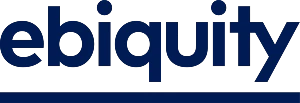It’s becoming a focal point for brands – but influencer marketing requires a significant improvement in the sophistication of execution and measurement.
Last week, Ebiquity was proud to sponsor Mediatel’s 2020 Future of Brands conference for the third time. At the event, we published our new research report on cross-media measurement, Mind the Gap, which is already making waves and driving discussion in the marketing community and in the media, from WARC to City AM.
It was great to see so many of our clients, collaborators, and partners at the event. For those who couldn’t join us, Mediatel’s summary of the day provides a great overview of the main discussion points.
I also wanted to share some reflections on a couple of the dominant themes which cropped up in multiple sessions – keynotes, presentations, and panel debates. In this article I’ve chosen to focus on influencer marketing – or more correctly, advocate marketing, a topic that is becoming a bigger focal point for brands, and one that requires a significant improvement in the sophistication of execution and measurement by brands.

In a panel session moderated by Ellie Edwards-Scott of the Advisory Collective, a stark contrast was painted between the old (and ineffective) way to do influencer marketing and the new (and impactful) paradigm that has emerged in recent years. While endorsements from celebrities with millions of followers may appear attractive, this “spray and pray”, Fyre Festival approach is now falling out of favour.
It’s increasingly seen as a simplistic, parasitic approach which views influencers as a means of distribution of product messages rather than a partnership with much greater potential.
Aaron Simpson, founder of the influencer social enterprise Kindred, compared the vanity metrics of likes and eyeballs on social content to footfall in bricks and mortar shops.
“Footfall just wears out carpets,” he said. “It doesn’t shift product. And on social, it creates a trust void.”

The panel included the unvarnished truthful young mum influencer Victoria Emes whose Instagram bio reads: “Unfiltered thoughts from a potty mouthed Mama navigating the peaks and troughs of parenthood”. Along with other panel members and speakers, Emes actively dislikes the term “influencer”. Emes prefers to think of herself as an advocate and content creator (albeit one with 100,000-plus followers).
Sometimes – but by no means all of the time – she works with brands to develop relevant, authentic, appropriate content that benefits both her followers and those that the brands are looking to reach. This approach enables those with a social media following to present brands and brand experiences through the eyes of not only real people but of customers. And what better kind of advocate exists for brands than their most passionate, loyal, and vocal customers? Done right, modern advocate marketing captures and channels that spirit.
Although working with some brands generates significant revenue for Emes, she talked openly of refusing to work with many others, for reasons of authenticity, fit, and creativity. “I need to have entire creative freedom to make posts that I’d be making anyway,” she said. “I need to feel comfortable.” Brands were advised not to seek out advocates as a distribution channel for their carefully-crafted brands messages, but rather work with those who end up “sounding insane”.
Jay Richards, co-founder of Divinic, has a solution to the inevitable scepticism that many brands feel about influencer marketing; an antidote to those awkward conversations when social media teams are forced to justify their investment to finance.

Richards’ prescription is to involve the target audience in the creative process directly. As a millennial, Richards has felt the chill wind of Gen Z when he suggested they chat on WhatsApp rather than SnapChat. “The target audience gives you brutally honest insights – and radically brilliant creative.”
His model involves crowd-sourcing creative from the best raw talent in the influencer/advocate space to “take out the guesswork”.
Emma Martell, head of social content at Avanti (formerly Virgin Trains) heralded the power of choosing the right advocate to drive on-brand humour, engagement, and PR. She told the story of working with former EastEnders’ actor Dean Gaffney – out of work and little in demand – who became the voice of a campaign the train company ran to find the voice of its talking toilets.
Gaffney’s career was “in the toilet” and deemed not good enough to be the voice, but by turning the actor into a Facebook bot, the brand drove huge engagement and earned media coverage – and had great fun with its customers along the way.

Lauren Spearman, head of brand advocacy at furniture and furnishings business MADE.com, told how her team is helping to build the brand and ‘make great design accessible’ by working with advocates. Spearman also thinks of “influencers” as a dirty word. She quoted Aron Levin, the founder of Relatable.me, with his sage line “influence is an outcome and not a purpose”.
MADE.com works with its customers, advocates, and employees as content creators, and Spearman’s five top tips for brand building through advocacy were:
- Popularity is not influence. Mega-influencers with huge audiences may shift some product, but not nearly as sustainably or impactfully as genuine advocates.
- It’s all about the (brand) fit, especially for content creators. It makes no sense for anyone who doesn’t live the brand to promote it. That’s inauthentic, out of character.
- Relationships. Relationships. Human connection (not mass emails) really matter. Meet and get to know your advocates.
- Value is a two-way street. Upskilling advocates – in photography and copyrighting skills, for instance – can pay dividends.
- Respect the customer. Don’t insult them by pretending you’re a brand or company you’re not, just because of the company you keep (or can buy).
Influencer marketing has been a Cinderella discipline in the marketing toolkit because practitioners, consultants, and many influencers themselves have been playing by the wrong rules. Those brands that get it right today are working in genuine, symbiotic partnership with their advocates – be they staunch fans, loyal customers, or employees. Ebiquity is running an event on influencer and advocate marketing in early March for any interested clients.
In my next article, to be published later this week, I’ll look at another dominant and all-important theme that was discussed at the Future of Brands 2020 conference: diversity.
This article was featured in Mediatel.



